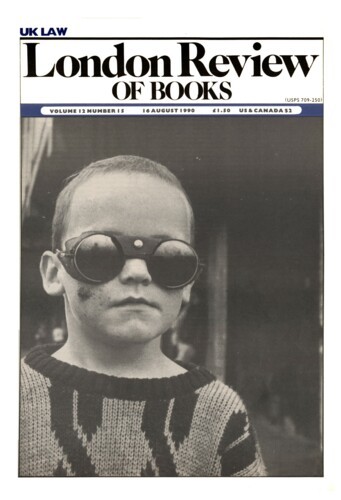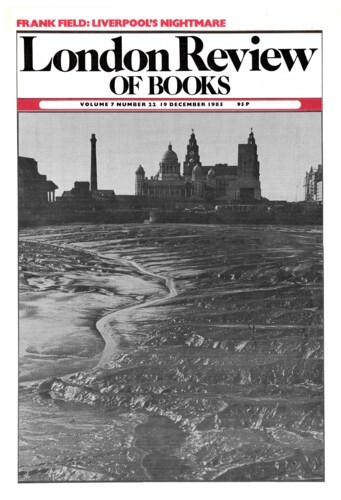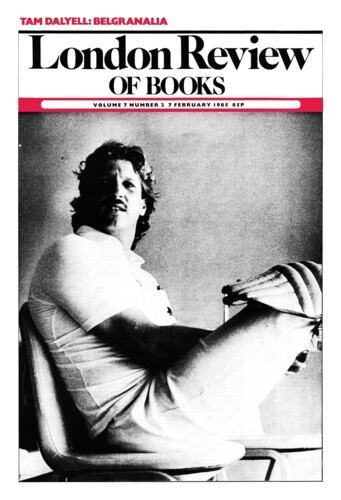The Guardian obituary of Brian White, the Belfast man who served honourably but briefly as a Labour MP, included a reminder that there was a time – not too long ago – when the border between Northern Ireland and the rest of the United Kingdom resembled, at times, the type of border that people have been suggesting, post-Brexit, might exist between Northern Ireland and the Republic. In 1974, during the earliest phase of the so-called Troubles, when the Prevention of Terrorism Act was used as a control on travel between these two parts of the UK, the 17-year-old White was asked for his passport at Heathrow on arriving from Belfast. ‘This isn’t the Soviet Union,’ he said, ‘we don’t have gulags here.’ Another traveller whose sensibilities were similarly exercised during this period was Seamus Heaney,
John Horgan
John Horgan is a former Labour Party member of the European Parliament and the Dail Eireann. He now teaches at the National Institute for Higher Education in Dublin.
I was rung by the radio about thirty minutes after hearing the news of Seamus’s death, and the interviewer reminded me about ‘Room to Rhyme’, the poetry and music sessions across small towns in Northern Ireland in the late 1960s or early 1970s, paid for by the Arts Council of NI and featuring Seamus Heaney, Davy Hammond and Michael Longley. If I had not been prompted, I might not even have mentioned it, I was so thrown by the prospect of having to think about what I would like to say about Seamus at fifteen minutes’ notice, and had some difficulty in mastering my emotions as I spoke. Since then, the memories have been flooding back. I think I went only to a handful of the Room to Rhyme sessions – the first one, perhaps, to report on it for the Irish Times, the others just to follow the magic. For me it was also an introduction to Northern Ireland, which few Irish journalists, or indeed few denizens of the Republic of any stripe, were able to enjoy during the 1960s.
UK Law
John Horgan, 16 August 1990
At a time when half the Police Forces in Britain seem to be gainfully employed on investigations of the real or alleged misdeeds of the other half, the image of British justice, formerly as reliable and predictable as Mrs Thatcher’s attitude to Europe, faces us like something grinning out of a crazy mirror at a fairground: paunchy, knock-kneed, grotesque. But, it will be argued, the driver of the tumbril has suddenly thrown the thing into reverse. The Guildford Four are free, and officially declared innocent. The Maguires are not far behind them. As far as the Birmingham Six are concerned, it appears to be only a matter of time. And Kevin Taylor got off, didn’t he? Retrospective justice is at least better than no justice at all, and the Court of Appeal will always get it right in the end. This is not a view which is taken by Lord Denning. British justice, he said after the quashing of the Guildford Four verdict, was ‘in ruins’. It is important, however, to pinpoint the cause of his concern. It is not the action of the Police leading to the wrongful convictions of the Guildford Four which appears to trouble him, but the Court of Appeal’s decision to set them free. He had stated earlier that the Guildford Four ought to remain in gaol, guilty or innocent, because of the horrendous consequences for public confidence in British law of admitting that an injustice had been done to them.
Diary: The Current Mood in Dublin
John Horgan, 19 December 1985
Some of the exchanges heard inside and outside Parliament last week brought to mind the language used by the Northern Ireland Unionists and their friends at Westminster at the time of the Home Rule controversy in 1912-1914. A compilation of the more inflammatory remarks of Sir Edward Carson and his allies, published in Dublin in 1918, achieved the unique distinction of being banned by the British censor in spite of the fact that its quotations were chiefly drawn from speeches by politicians who adorned the War Cabinet. The anonymous compiler, who entitled his collection The Complete Grammar of Anarchy, contrasted with some irony the fortunes of the members of the 1913 Ulster Provisional Government with those of the members of its Dublin counterpart three years later. Many of the former were given senior British government appointments: the latter were all shot.
Local Heroes
John Horgan, 7 February 1985
In the 1840s, according to Theodore Hoppen’s densely-packed and illuminating study of Irish political realities, ‘bored’ British ministers ‘grappled with the tedious but mildly pressing problems of the Irish electorate’. Douglas Hurd may not yet be bored, but he would have difficulty in bettering the description of the problems he is facing. So few of them have changed, or have been solved.
Pieces about John Horgan in the LRB
Turtles All the Way Down
Walter Gratzer, 4 September 1997
What John Horgan means by his teasing title, inspired evidently by Francis Fukuyama’s view of history, is not that scientists will run out of work worthy of all that trouble and expense,...
Read anywhere with the London Review of Books app, available now from the App Store for Apple devices, Google Play for Android devices and Amazon for your Kindle Fire.
Sign up to our newsletter
For highlights from the latest issue, our archive and the blog, as well as news, events and exclusive promotions.




